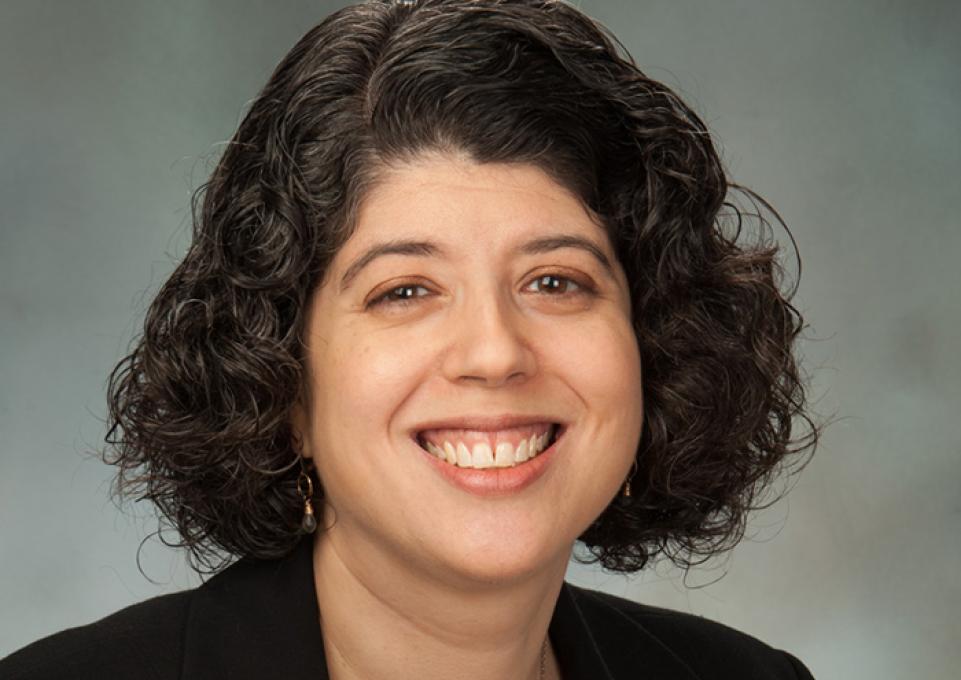
When an army of A-level actresses don black at the Golden Globe Awards in honor of the #MeToo movement, it’s heartening. When a slew of high-profile powerful men lose their jobs in industries from film to journalism as a response to sexual harassment and assault claims, it may feel like justice has arrived.
However, Jennifer Hunt, associate professor of psychology, emphasized that we shouldn’t view these events as the end to an ugly story. Rather, they are only the beginning.
“What ultimately needs to happen to see sustainable change is for structures in our society to change,” said Hunt, a social psychologist whose research includes the effects of gender, race, and culture in our daily lives. “There must be a transformation from the individual to the systemic. Plucking out (Today Show host) Matt Lauer is not going to change a powerful culture where men can beckon women with the expectation of sex.”
Hunt has studied women and gender since pursuing her doctorate the University of Minnesota two decades ago. She recently served as the coordinator of the college’s Women and Gender Studies program, and she teaches Psychology of Gender, among other courses.
While Hunt said she appreciates celebrities standing up against decades of mistreatment of women and spurring a national conversation, sexual harassment and assault disproportionately affect low-power and low-income individuals.
“They often have much less of voice. And what these women need is not just a voice but effective protections.”
Awareness and ensuing action need to be widespread—from factories to small businesses to huge corporations.
“The best predictor of sexual harassment is how clear an organization’s rules are in regards to sexual harassment and how strongly they are enforced,” she said. “When men realize they will get in trouble, they aren’t as likely to commit these acts.”
But it’s more than business leaders who are responsible. It’s teachers and parents, too. For instance, she said, “We need to stop telling little girls that their worth comes from cuteness or that boys hit them because they like them.”
And it’s incumbent on everyone to make their voices heard. While participating in women’s marches is an excellent show of solidarity, she said, women and men who care about issues such as sexual assault, harassment, and gender inequality also need to show up at the polls and contact their political representatives about changes they want to see.
When Hunt’s students discussed the #MeToo movement in class, some of them had not recognized instances of sexual assault and harassment in their own lives—until now. In that regard, the movement is making progress.
“It’s too early to tell what the long-term outcome will be,” Hunt said. “It will take re-examination of our society. How do we raise our children? How do we run our schools and our businesses? Making sustainable change involves a lot of work.”
About Jennifer Hunt
Hunt joined the Buffalo State Psychology Department in 2007. Her research examines stereotyping, prejudice, and discrimination, behavior in legal contexts, and the effects of gender, race, and culture in our daily lives. A former coordinator of Buffalo State’s Women and Gender Studies program, Hunt serves as associate editor for Law and Human Behavior and is the past chair of the Minority Affairs Committee for the American Psychology-Law Society. Hunt earned her bachelor’s degree from Creighton University in 1995 and her Ph.D. in social psychology from the University of Minnesota in 2001. Prior to coming to Buffalo State, she was a faculty member at the University of Nebraska-Lincoln. In 2012, she received the Action Teaching Award from the Social Psychology Network.
